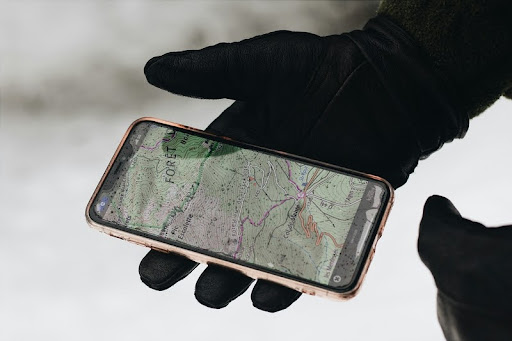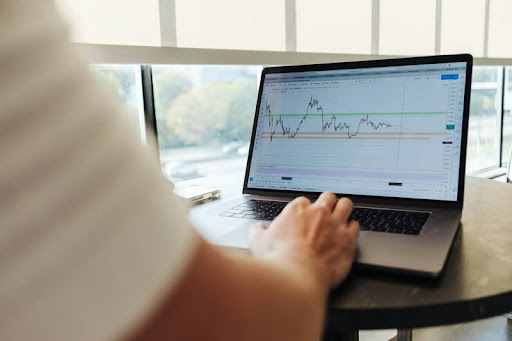
Let’s be honest for a second, how often do you find yourself wondering where all your money went? You have your paycheck one minute then suddenly it disappears while you wonder what happened to your money. Sound familiar? You’re not alone. The process of managing money becomes confusing when you do not understand how your money is being spent. Expense tracking serves as the solution to help you understand your financial situation. Making better financial choices requires you to understand how you spend your money. Expense tracking serves as the essential tool that enables you to control your finances while building a successful financial future.
What Is Expense Tracking?
Before we dive deep into why it’s so important, let’s first define what we mean by expense tracking. Simply put, it’s the practice of keeping tabs on every penny you spend. Yes, every single penny. Whether you’re grabbing a coffee on the go, paying for groceries, or paying rent, it’s all part of the picture.
Expense tracking isn’t just about remembering the big stuff like rent or car payments, it’s also about the little things: the coffee, the snacks, those random online purchases that somehow add up. You might think, “Why does it matter if I spend a little here and there?” Well, it adds up quicker than you think, and tracking these little expenses gives you insight into your spending habits.
Why Expense Tracking Is Crucial for Financial Decision-Making
Now that we know what expense tracking is, let’s talk about why it’s so crucial for making smarter financial decisions.
1. You Can See Exactly Where Your Money Goes
Have you ever tried to stick to a budget and failed because you didn’t know where all your money was going? Expense tracking helps you see the full picture. When you can clearly see where your money is being spent, you can make informed decisions about what to cut back on. If you’re spending 0 a month on dining out, on subscriptions you never use, or 0 on impulse buys, tracking these expenses allows you to make adjustments where necessary.
2. You’ll Spot Spending Patterns (The Good and The Bad)
When you track your expenses regularly, you’ll start to see patterns emerge. Maybe you tend to overspend on weekends or buy more takeout than you realize. Once you spot these patterns, you have the power to make intentional changes. You’ll know exactly where you can cut back and where you might want to splurge a little (it’s okay to treat yourself, after all).
3. You Can Create a Budget That Actually Works
Budgeting sounds great in theory, but let’s be honest—it’s easier said than done. Without tracking your expenses, how can you know what categories need more attention? Maybe you budget $1000 a month for food, but you consistently overspend because you didn’t account for extra costs like eating out or ordering delivery. When you track your expenses, it’s much easier to create a budget that works with your actual spending habits, not just what you think they are.
The Benefits of Expense Tracking
Now that we’ve got the basics down, let’s talk about the real benefits of expense tracking. Spoiler alert: it’s not just about knowing where your money goes—it’s about taking control.
Better Budgeting
We’ve all tried to stick to a budget at some point, but how many times have you found yourself blowing through it after just a few days? Expense tracking helps you avoid that by showing you exactly where you might be overspending. You’ll have a much clearer understanding of what’s realistic. If you spend more than you think in one category, you can adjust and create a budget that you can actually stick to.
Identifying Unnecessary Expenses
Let’s face it: we all have a few expenses that we could do without. Maybe it’s the weekly takeout, that subscription you don’t use, or the random impulse buys at the store. When you track your spending, these unnecessary expenses become more obvious. And once you spot them, you can make the tough but necessary decisions to cut back.
Think about it, how many times have you paid for something you barely use, just because it’s “only a few bucks”? Those few bucks add up. Tracking your spending helps you be more aware of where you can make those small changes that have a big impact over time.
Building Savings Goals
Expense tracking doesn’t just help you cut back on unnecessary spending—it also helps you save more. Once you get a handle on your expenses, you can start setting realistic savings goals. Want to save for a vacation? A new gadget? Maybe you just want to build an emergency fund. By knowing exactly how much money you’re spending in each category, you’ll be able to put a portion of your income aside for savings without cutting into your everyday living expenses.
Tracking your expenses also lets you see if you’re able to put aside more money than you thought. Maybe there’s room in your budget for that extra month toward your savings goal. You won’t know until you track.
Tools and Methods for Effective Expense Tracking
Okay, so now you’re convinced that tracking your expenses is the way to go. But how do you actually do it? There are several methods and tools available to help make expense tracking easier, and you don’t have to be a spreadsheet wizard to get started.
Mobile Apps
Let’s face it, we all spend a good chunk of time on our phones. Why not put that time to good use by using an expense tracking app? There are tons of apps out there that can make tracking your expenses a breeze. Apps like Mint, YNAB (You Need A Budget), and PocketGuard sync with your bank account, categorizing your spending automatically and giving you real-time insights into your financial health.
The best part? Many of these apps are free or have affordable premium versions. They can show you where your money is going, help you set budgets, and even offer tips to save. It’s like having a personal finance assistant in your pocket.
Spreadsheets
If you’re more of a DIY person, creating your own expense tracker in a spreadsheet could be the way to go. It’s simple, customizable, and gives you full control over how you track your expenses. You can set up categories for each type of expense, food, utilities, entertainment, etc. and update it manually or with your bank statements.
Spreadsheets are also great because they let you dig deeper into your finances. Want to see how much you spent on dining out in the past three months? A spreadsheet makes it easy to calculate that.
Manual Methods
For those who prefer the pen-to-paper approach, manually tracking your expenses might be your best bet. Whether it’s in a notebook or on a set of printed forms, writing down every expense gives you a physical connection to your finances. Plus, it forces you to slow down and be mindful of every dollar you spend. The downside? It takes more time and effort. But if you’re disciplined about it, this method can work just as well as any app or spreadsheet.
How to Make Smarter Financial Decisions with Expense Data
So, you’ve been tracking your expenses for a while now. Great! But what do you do with all this data? The key is using it to make informed financial decisions.
You can start by analyzing your spending habits. If you notice that you’re consistently spending more than you’d like on certain categories, it’s time to make some changes. Maybe you decide to cut back on dining out or cancel that subscription you forgot you had.
The point is, that you’re making choices based on real, tangible data—no more guessing. The process of tracking expenses becomes useful during major financial choices such as purchasing a car obtaining loans and retirement planning. Knowing how much money you have left after your expenses allows you to see how much room you have for bigger commitments.
Tips for Staying Consistent with Expense Tracking
Consistency is key when it comes to expense tracking. Here are a few tips to help you stick with it:
- Set a routine: Whether it’s daily or weekly, make a habit of reviewing your expenses. Set aside 10-15 minutes at the end of the day or week to update your tracker.
- Make it easy: Use tools or apps that make the process as seamless as possible. The easier it is to track your spending, the more likely you’ll stick to it.
- Stay accountable: If you’re not doing it alone, share your goals with a friend or family member. They can help keep you on track and offer support when you need it.






